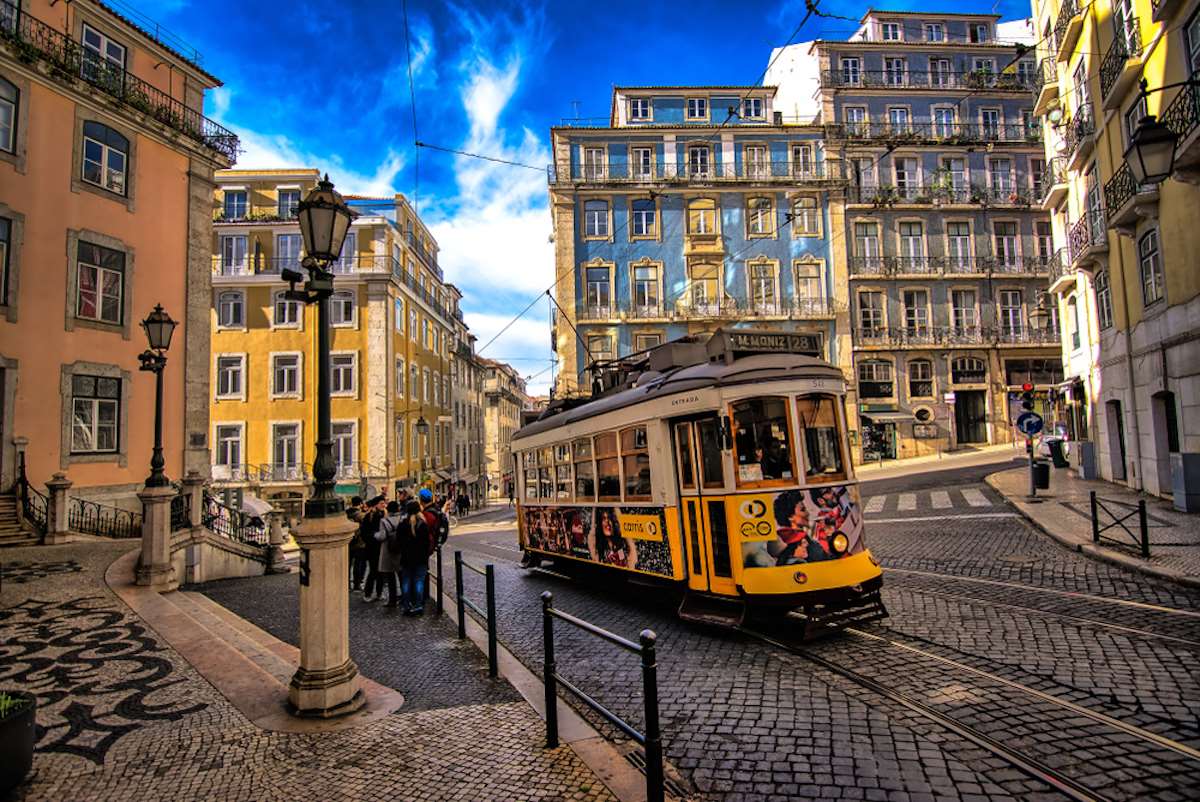Portugal has masterminded a tourism rethink in recent years.
Through strong marketing the country has successfully advertised its range of attractions to the extent
that tourism now constitutes more than 17 percent of GDP. Photo: shutterstock/
In 1513, Portuguese explorer Jorge Álvares became the first European to reach China by sea when his entourage of five ships moored in the Pearl River Delta. Álvares’ name may be less celebrated than other Age of Exploration pioneers, such as Francis Drake or Amerigo Vespucci, but he was paramount in establishing a relationship – an often turbulent one– between Ming dynasty China and Portugal.
Fast forward 400 years and the distance between the two countries just got a little shorter through the relaunching of a direct Beijing-Lisbon flight, a move expected to greatly boost the European country’s tourism and business prospects.
Western Gateway
Just as Helsinki has marketed itself to Chinese travellers as an eastern gateway to Europe, Lisbon hopes to become an affordable pit stop, or “the entry gate of China in Europe,” as Ana Mendes Godinho, Secretary of State for Tourism of
Portugal, recently called it. This applies both to travellers heading to the rest of Europe and those transferring onto “the American and African continents.”
Portugal’s drive to become a hub for Chinese tourists got off to something of a false start when the Capital Airlines flights linking the two countries was cancelled after less than 18 months. But if government data is anything to go by, things will be different second time around; after clocking 250,000 Chinese tourists in 2017, the home of port wine and Piri-Piri chicken saw a 40 percent increase in 2018 (receiving $146 million in the process) and expects a further 35 percent growth by the end of 2019.
The target of one million Chinese tourists per year may sound ambitious, but if any country can overachieve in today’s fiercely competitive tourism market, it’s Portugal. The World Travel Awards has voted the birthplace of Ferdinand Magellan and Jose Mourinho the best tourist destination in the world three years in a row. The country’s cultural depth, agreeable climate and affordability has proved a potent combination. In 2018 it welcomed 13 million visitors, a number that has grown for eight consecutive years. As Deputy Prime Minister, Pedro Siza Vieira put it, “Portugal has assumed itself as an unmissable and irresistible destination, our strategy is right, bears fruit, and is consistent.”
Chinese Tourists in Portugal
When it comes to a China strategy, although strong support exists from regional and governmental entities, much of the finer details are still being ironed out. It took part in the 2018 EU China-Tourism year and led a delegation to tour five Chinese cities in December 2017. Equally important are the museums and cultural institutions striving to ameliorate the experience for Chinese visitors.
These accommodations ranges from attractions creating Chinese language websites, such as the famed castle Sintra, to launching audio guides and brochures. VisitPortugal, the authority on all things Portuguese travel, has deepened its ability to connect with Chinese tourists through creating a presence on WeChat through posts that detail special events.
Digital Payments
Another way to better serve the world’s largest outbound tourist market is to offer WeChat Pay and Alipay. In a major move, Pagaqui, a Portuguese digital payment service, will participate with Alipay from this summer to offer access across nearly 3000 selling points. For Chinese tourists, this means an ease of transaction at small local businesses that may not even accept credit cards –certainly not UnionPay, the most commonly held Chinese credit card.
More generally, Alipay is pushing out across Europe and Portugal will do well to embrace it. It already boasts more than 600 million users and its visibility across Europe got a boost this June when it began an eight-year sponsorship deal with UEFA at the Nations League, which, incidentally, was held in Portugal. As Eric Jing, Chairman and CEO at Ant Financial said of the deal, “we feel honored to help promote a smart lifestyle and digital experiences in Europe, while continuing to connect more merchants with more Chinese tourists. We believe mobile payment is a universal language that can help connect people just as football does.”
That said, Alipay is also making an impact on a local level and Arcádia, a luxury chocolaterie in downtown Porto, is an example of a business reaping the benefits of introducing the revolutionary payment system. “Arcádia wants to be at the forefront and keep up with the changing habits of consumers, who are increasingly looking for digital payment methods,” said Francisco Bastos, administrator of the Porto chocolate brand.
The target of one million tourists a year may well be some distance off, but the addition of a direct flight boosted by an ever-improving experience for Chinese tourists in Portugal means there is no reason the country cannot achieve its lofty goals.
